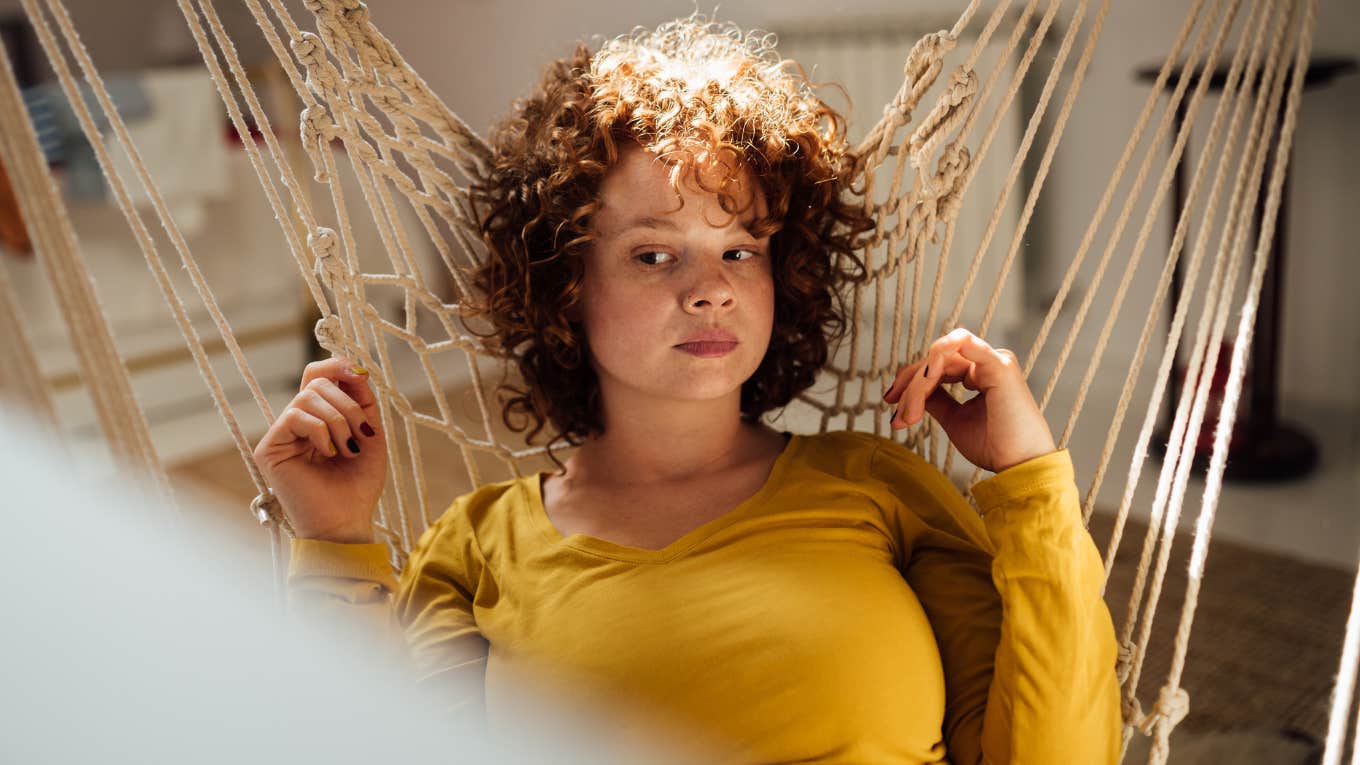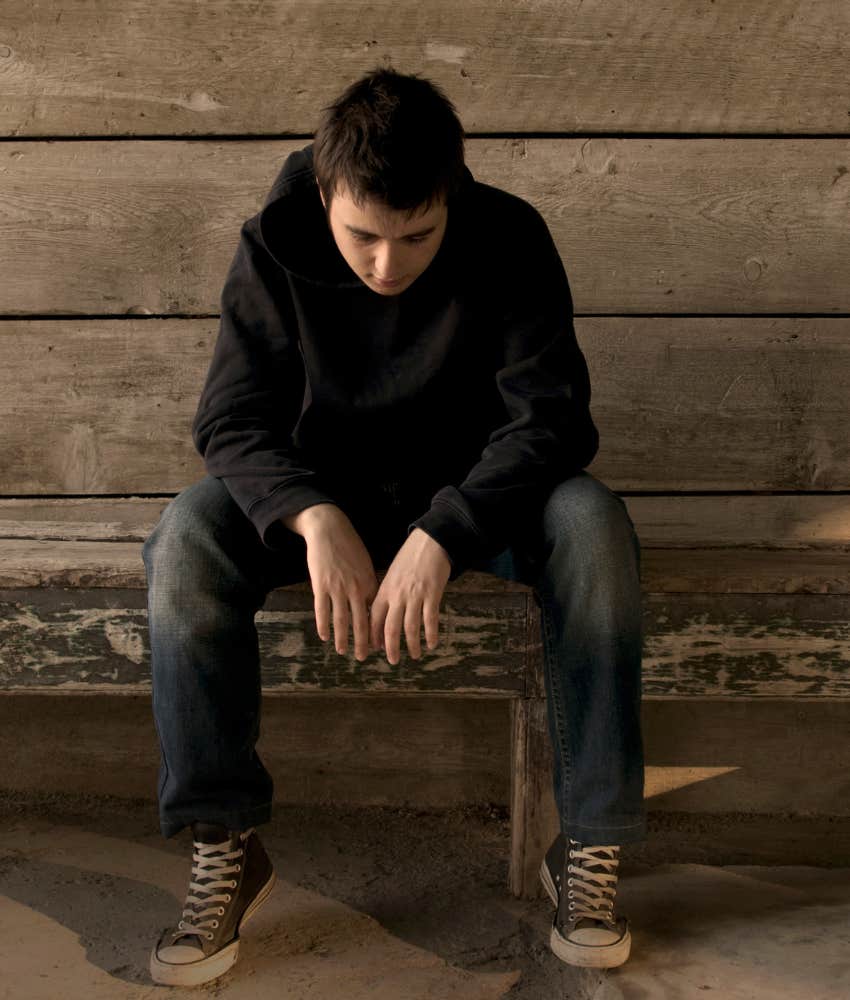6 'Bone-Tiring' Signs You're Actually Too Independent
It's okay to let people in.
 Brothers91 / CanvaPro
Brothers91 / CanvaPro While independence is a sought-after trait for many, there comes a point when it manifests itself in unhealthy ways, especially if it’s rooted in trauma. Many people who grew up in neglectful households or experienced some kind of trauma early in their lives cling to independence as a means of control.
Their “hyper-independent” tendencies start to seep into various avenues of their lives, slowly becoming more and more toxic.
Trauma coach Aspen Robinson shared on TikTok that although there are benefits to some levels of independence, she has identified six key signs that you might actually be “too independent.”
Here are the 6 “bone-tiring” signs you’re actually too independent:
1. You are the 'ruler in your family'
“In your house, you tend to take on all the responsibilities, schedule all the things, and feel accountable for every single thing that happens,” Robinson explained, “because time has taught you that you cannot rely on anyone.”
Whether it stems from inconsistency in prior relationships or an event that took control away, many of these individuals grasp independence to ensure they don’t have to rely on others. However, in doing so, a variety of other challenges and struggles are thrown their way.
“The more we strive for control, the greater our stress and anxiety grow,” clinical psychologist Carla Marie Manly has said. “Then, we respond by trying to control the uncontrollable, and the unproductive cycle continues.”
2. You’d rather be alone than bring someone new into your life and constantly fear them leaving
When someone walks out of our lives, it can be difficult to grieve. From their absence in our lives to the memories we replay, it’s always hard. However, for some people that loss is too much to carry and it affects the way they navigate relationships in the future.
 Photo: mumininan / Canva Pro
Photo: mumininan / Canva Pro
Instead of healing the wound of their loss, they isolate, grasping at control to ensure they don’t have to let anyone else into their lives. However, their attempts at ensuring nobody ever “leaves them” again, often lead to a lack of social connection and increased depression and anxiety.
This side of ultra-independence is a toxic one. In case you need the reminder, it’s okay to let people into your life. Accepting support and cultivating healthy relationships is a good thing.
3. You grew up as a ‘caregiver,’ either to your siblings or parents
Studies show that children who act as caregivers, whether physically, emotionally, or mentally, often turn into people-pleasers as adults. Whether that manifests as giving too much energy to others or isolating in fear of being a disappointment, these people often hold the burden of their childhood closely.
Taking care of yourself shouldn’t be a false sense of “protection” from abandonment, but rather opening yourself up to healthy connections.
4. You seek control over your life to protect yourself from being ‘let down’ by others
When you isolate yourself from others, you’re the only one responsible for the way your life goes. At least, that’s what you tell yourself. When you wake up in the morning, you’re only reliant on yourself. You both make life better and become the scapegoat for anything that goes wrong.
Many people with a fear of losing control have relationship trauma from early in their lives where they lacked the ability to control the environment around them. As they age, pushing others away and looking for total control, studies show their lives become just as stressful, adding increased anxiety, depression, and fear into their daily routines.
5. You ‘pushed forward’ by suppressing your feelings
Children who grow up in unstable environments where their feelings, emotions, and perspectives are not validated often grow up struggling with self-esteem, vulnerability, and identity.
This chronic feeling of being unheard and disrespected greatly affects the way they learn to express emotions and often negatively affects adult relationships later on.
6. You grew up in a household with no emotional, physical, or mental support
“You basically had to just fend for yourself,” Robinson explained. Instead of leaning on the support of those around you, you were forced into a position of solidarity in dealing with overwhelming and often impossible feelings — sometimes from an incredibly young age.
Children who experience this neglect and lack of support grow into adults with various challenges, including mental illness, difficulty cultivating healthy relationships, and struggling with social skills. All of these things can make it difficult to rebuild trust and give up “control” as adults.
It's important to evaluate if your 'I can do it on my own' attitude is healthy independence or a trauma response.
There is absolutely nothing wrong with healthy independence, but when it becomes a need rather than a positive personality trait, it's detrimental to your overall well-being.
Connection with others, offering support to those in need, and asking for help are important parts of the human experience.
Zayda Slabbekoorn is a news and entertainment writer at YourTango focusing on pop culture and human interest stories.

